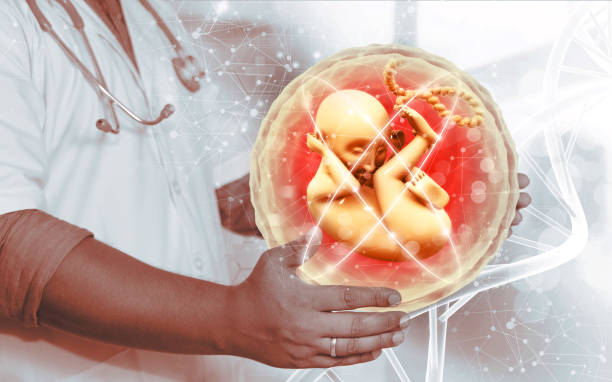Pregnancy is a delicate period, and sometimes, unfortunate events can lead to the loss of a pregnancy. Miscarriage, abortion, and stillbirth are all medical events that involve the loss of a pregnancy, but they differ in their causes, management, and legal status.Pregnancy loss is a heartbreaking event that can occur due to various reasons. It refers to the loss of a pregnancy at any stage, and it can happen naturally or through medical intervention.

In this article, we will explore the differences between these events and provide guidelines on how to manage them.

What is a Miscarriage?
Spontaneous Abortion or Miscarriage

A spontaneous abortion, commonly known as a miscarriage, is the loss of a pregnancy before the 20th week. Miscarriage occurs in about 10-20% of all pregnancies and can happen due to various reasons, including chromosomal abnormalities, maternal health conditions, lifestyle factors, and infections. The most common symptom of miscarriage is vaginal bleeding, which may be accompanied by cramping and the passing of tissue or clots. However, not all bleeding during pregnancy indicates a miscarriage, and it's important to seek medical attention for any unusual symptoms.
If you experience a miscarriage, your doctor may recommend expectant management, which involves waiting for the tissue to pass on its own. If the miscarriage is incomplete, your doctor may recommend medication or surgery to remove any remaining tissue. It's essential to follow your doctor's instructions for aftercare and to seek support from loved ones and support groups.
What is an Abortion?

Abortion is the deliberate termination of a pregnancy. Abortions can be medical or surgical and are performed for various reasons, including medical, social, or personal. In some countries, abortions are legal and accessible, while in others, they are restricted or even illegal. Medical abortions involve taking pills to induce a miscarriage, while surgical abortions involve the removal of the fetus and placenta from the uterus. Like miscarriage, abortions can cause bleeding and cramping, and it's important to follow your doctor's instructions for aftercare.
Induced Abortion
An induced abortion, also known as a voluntary termination of pregnancy, is a medical intervention performed to end a pregnancy. Abortions can be medical or surgical and can be done for various reasons, including medical, social, or personal. Medical abortions involve taking pills to induce a miscarriage, while surgical abortions involve the removal of the fetus and placenta from the uterus. The procedure is safe and effective, and the decision to have an abortion should be made with the guidance of a healthcare provider.
If you have a medical abortion, your doctor will provide you with medication to take at home and instructions for aftercare. If you have a surgical abortion, you will receive anesthesia and have the procedure done in a clinic or hospital. It's essential to follow your doctor's instructions for aftercare and to seek support from loved ones and support groups.
What is a Stillbirth?

Stillbirth A stillbirth refers to the loss of a pregnancy after the 20th week. Stillbirths occur in about 1 in 100 pregnancies and can happen due to various factors, such as placental problems, infections, or fetal abnormalities. The most common symptom of stillbirth is the absence of fetal movement and a lack of fetal heartbeat. In some cases, stillbirths can be prevented through early detection and management of risk factors.
If you experience a stillbirth, your doctor will recommend induction of labor to deliver the fetus and placenta. In some cases, a C-section may be necessary. It's important to seek support from loved ones and support groups and to take time to grieve and heal.
Guidelines for Managing Miscarriage, Abortion, and Stillbirth:
If you experience any symptoms of pregnancy loss, it's essential to seek medical attention immediately. Your doctor will perform tests to determine the cause of the event and provide appropriate management. Here are some general guidelines for managing pregnancy loss:
-
Miscarriage: Your doctor may recommend expectant management, which involves waiting for the tissue to pass on its own. If the miscarriage is incomplete, your doctor may recommend medication or surgery to remove any remaining tissue.
-
Abortion: If you have a medical abortion, your doctor will provide you with medication to take at home and instructions for aftercare. If you have a surgical abortion, you will receive anesthesia and have the procedure done in a clinic or hospital.
-
Stillbirth: Your doctor will recommend induction of labor to deliver the fetus and placenta. In some cases, a C-section may be necessary.
What researches says about Miscarriage and Stillbirths?
There have been numerous research studies conducted on the topic of miscarriage, abortion, and stillbirth. Some of the notable ones are:
-
A study published in the Journal of Obstetrics and Gynaecology Research compared the psychological impact of spontaneous abortion and induced abortion on women. The results showed that women who had a spontaneous abortion experienced higher levels of anxiety and depression compared to those who had an induced abortion.
-
Another study published in the American Journal of Obstetrics and Gynecology analyzed the causes of stillbirths in a population of over 100,000 women. The study found that fetal abnormalities were the most common cause of stillbirths, accounting for over 40% of cases.
-
A systematic review and meta-analysis published in the Lancet Global Health examined the safety and effectiveness of medical abortion versus surgical abortion. The results showed that both methods were safe and effective, with no significant differences in terms of complications or success rates.
-
A study published in the journal BMC Pregnancy and Childbirth explored the experiences of women who had a miscarriage and their perceptions of the support they received. The study found that many women felt that healthcare providers did not provide adequate emotional support or information about what to expect during and after the miscarriage.
-
A retrospective cohort study published in the Journal of the American Medical Association compared the long-term health outcomes of women who had a stillbirth versus those who had a live birth. The study found that women who had a stillbirth had an increased risk of developing cardiovascular disease, diabetes, and mental health disorders.
These research studies provide valuable insights into the different aspects of miscarriage, abortion, and stillbirth, including their causes, management, and psychological impact. Further research in these areas can help to improve the understanding and treatment of these conditions.
What precautions should be taken to prevent miscarriage and stillbirths?
Here are some of the things that can be done to minimize the risk of miscarriage and stillbirth:
-
Get early prenatal care: Early prenatal care is crucial for the health of the mother and the baby. Regular prenatal care can help identify any potential problems early on and provide appropriate treatment.
-
Eat a healthy diet: A healthy diet is essential for a healthy pregnancy. Eating a balanced diet that is rich in fruits, vegetables, and whole grains can help reduce the risk of pregnancy complications.
-
Avoid alcohol, drugs, and smoking: Alcohol, drugs, and smoking can all increase the risk of miscarriage and stillbirth. It is important to avoid these substances during pregnancy.
-
Manage chronic health conditions: Chronic health conditions such as diabetes, high blood pressure, and thyroid disorders can increase the risk of pregnancy complications. It is important to manage these conditions properly during pregnancy.
-
Exercise moderately: Regular exercise can help improve overall health during pregnancy. However, it is important to avoid strenuous activities that can increase the risk of injury or harm to the baby.
-
Reduce stress: High levels of stress can increase the risk of pregnancy complications. It is important to take steps to reduce stress during pregnancy, such as practicing relaxation techniques and getting enough rest.
-
Know the warning signs: It is important to know the warning signs of miscarriage and stillbirth, such as vaginal bleeding, cramping, and decreased fetal movement. If any of these symptoms occur, it is important to seek medical attention immediately.
While these precautions cannot guarantee a successful pregnancy, they can help reduce the risk of miscarriage and stillbirth. It is important to discuss any concerns with a healthcare provider and follow their advice for a healthy pregnancy.
Conclusion
Pregnancy loss can be a devastating experience, and it's important to seek medical attention and support. Miscarriage, abortion, and stillbirth are all distinct medical events with different causes and management, and it's important to understand the differences. If you have experienced pregnancy loss, know that you are not alone, and seek support from your healthcare provider or a support group.












